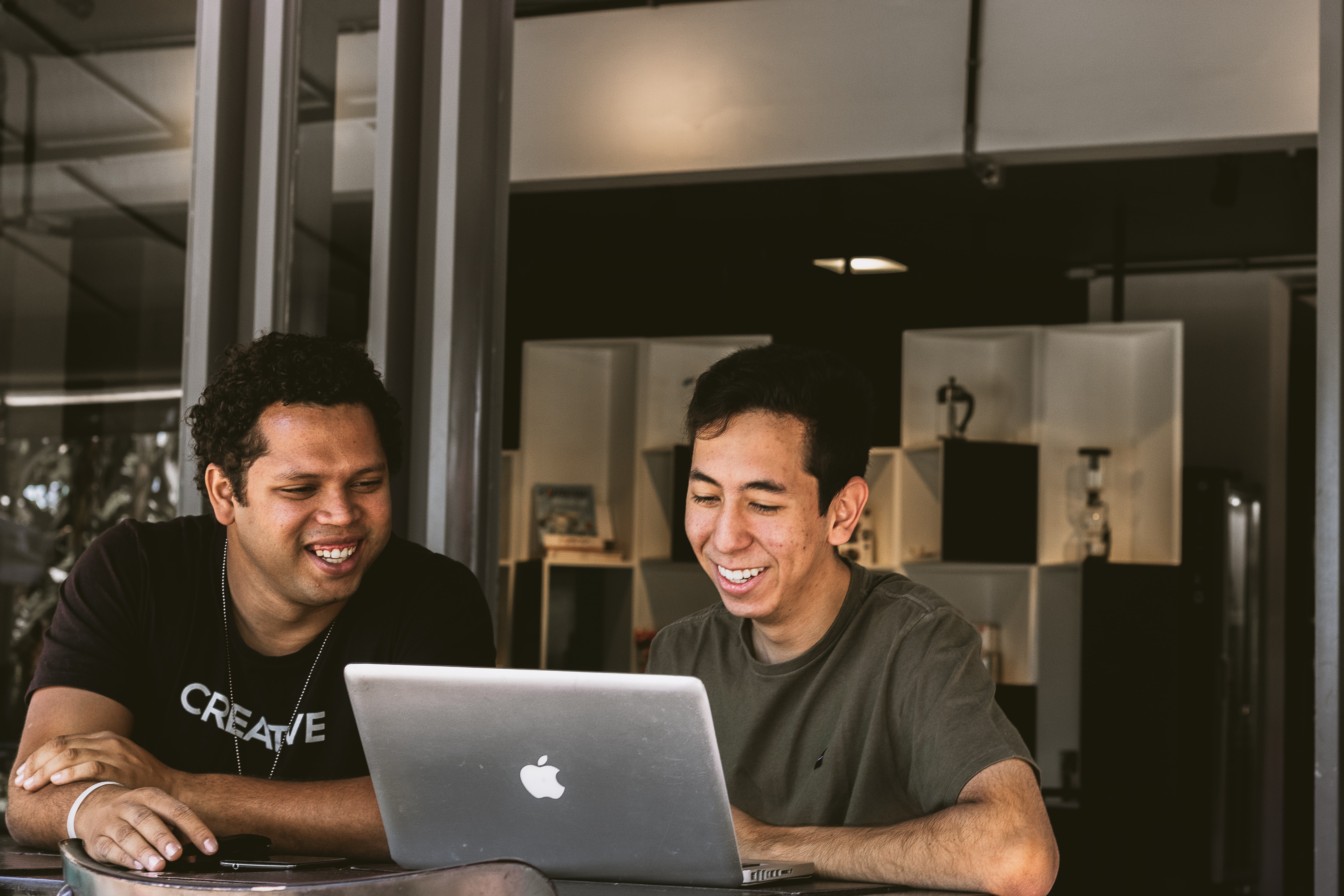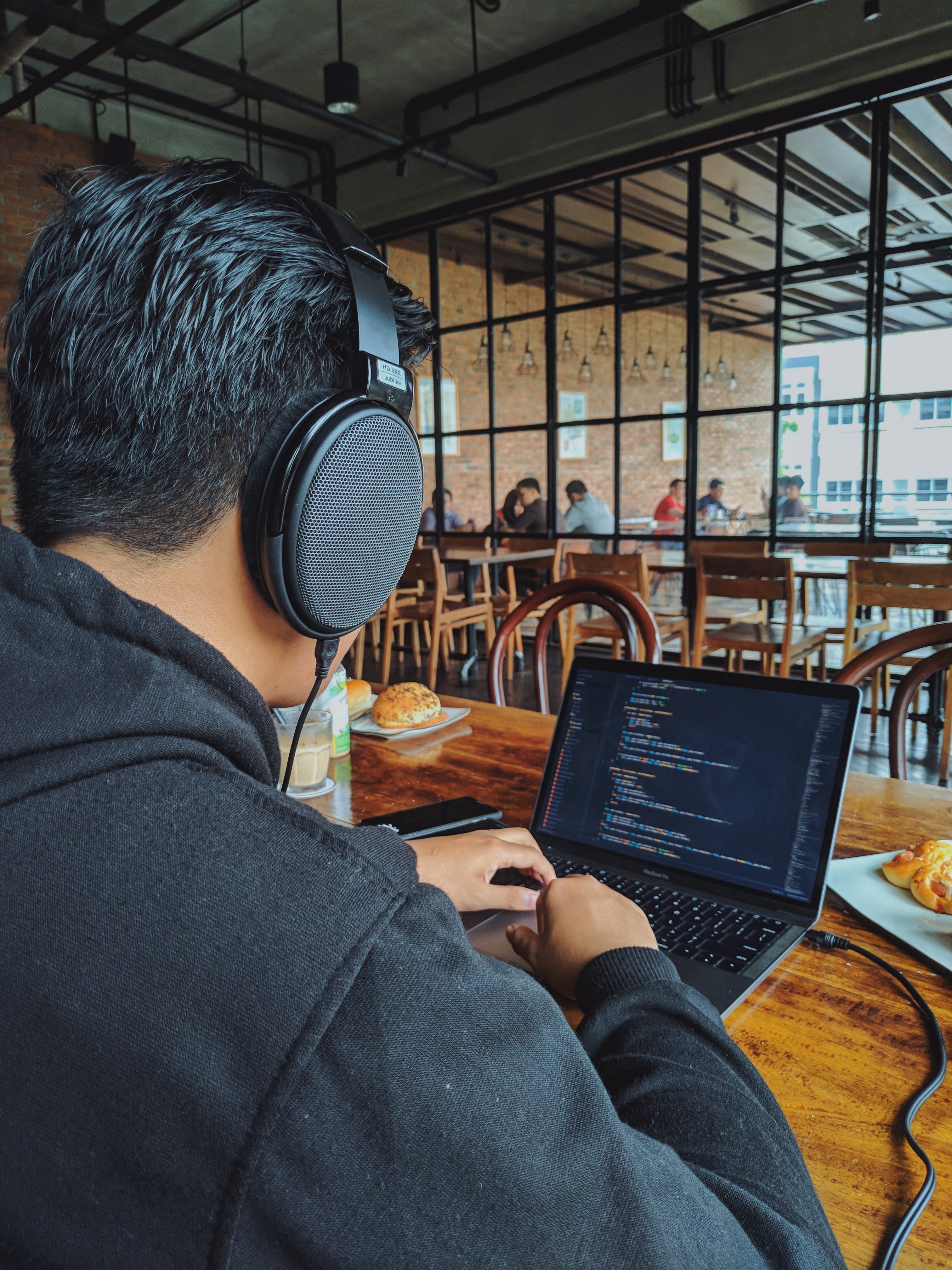Coding is an area of learning that has gotten a lot of attention in recent years, and it’s not hard to see why. With so much of our lives happening on social media, streaming services and sites, games, apps, and other internet-related tools, code surrounds us at every turn.
As ubiquitous as coding may be, there are plenty of people out there that find it mysterious and even intimidating. But coding and programming does not need to be a mystery - in fact, learning about coding can help us to better understand the tech-filled world around us instead of feeling controlled or overwhelmed by it. We should know, just as we might look up the origin of the food we eat, how a computer works or why an app is so fast or enjoyable to use.
So what is coding? Simply put, coding is the process of using a programming language to get a computer to do what you want it to do. Coders, programmers, or developers use a programming language to tell the computer what they want it to do, a compiler puts those instructions into a code the computer understands, and then the computer executes the code. A document of code is called a script, and each script is designed to carry out a job.
As simple as that sounds, you can imagine how much code must be written to enable apps to function as effectively as they do, from finding available drivers on Uber to suggesting content you might like on Netflix or YouTube. Of course, beyond developing and creating apps, games, programs, and other digital platforms, coders are also essential to maintaining and innovating digital products.
Learning how to code or use programming languages is incredibly empowering, as it will enable you to become more than a passive user of a computer or app. Even with a basic knowledge of code, you can create solutions to make your work easier, have fun with robotics, or create simple games. If you feel intimidated or confused with computing or the internet, learning coding can be the perfect antidote to understand how technology works. In fact, even kids can start coding at a young age - you will find plenty of toys that enable kids to start programming the movements of toys and objects.

Does coding sound intimidating to you? Are you curious to learn more? Learn the basics of Python and coding.

What is Python?
Python is a programming language used to build software, websites, automate tasks, and analyze data. Python is incredibly versatile: it is a general purpose language that can be used for a variety of different purposes. Many learners like Python because it is easy to use even for beginners, and is one of the most popular programming languages used around the world. Python is an open source code, meaning it is free for anyone to use. It is easy to read and has natural syntax, has a large and active community of users, and Python users can find libraries and archives containing bundles of code to expand its capabilities.
Some of the most popular and well-used websites and apps have been built using Python. Here is a list of some you might recognize:
- Spotify
- Netflix
- Uber
- Dropbox
- Instacart
Python is so simple and versatile that many people use it to automate everyday tasks in their workflow, like renaming files, transforming documents into spreadsheets, or filling out online forms automatically.
So now that we understand what coding and programming languages are, how can we get started in learning?
Python isn’t just for adults and professionals - kids and teens can learn coding too! Get your child started in one of the hottest and exciting creative industries.
What is the Best Way to Learn Python?
Learning Python or any programming language is easy, thanks to the abundance of coding courses and programs for students of all ages. If you are an independent learner or are simply curious about coding, start by looking for free courses online that will introduce you to Python and teach you how to get started. You might even consider heading to your local bookstore or library for a beginners book on Python that will provide you with the fundamentals.
If you enjoy what you are learning and want to go deeper, or are even considering pursuing computer programming or computer science in university or college, you may want to enrol in a coding course where you can learn Python in depth with the guidance of an instructor or self-directed learning modules.


Which Python Course Should I Choose?
You will find plenty of online or professional schools that will teach you Python, massive open online courses that may provide great learning content for free or low cost, and many other types of class options. The most important thing to consider is what your long-term goals are. Are you in high school and looking to build a coding skill set? Are you already in the workforce and want to upgrade your skills? Are you looking to switch careers? Perhaps you are just looking for a new hobby that you will enjoy.
Identify why you want to learn Python, then choose a course or option that suits your needs and budget. Many people who are learning for fun will find that an inexpensive or free course will be just fine, while those looking for a career boost might want to pay more money to ensure they get the skills required to get a new job or advance in their careers. If you are choosing a private school like Brainstation or a Continuing Education course in a college or university, read reviews of the class or program to find out what other students are saying, or attend information sessions to ensure you are choosing the right school and program for your particular needs.
There are so many options for learning Python, including University and College programs. Explore all the ways you can start coding today.
How Much Coding Should I Know Before University?
If you are planning to take a university computer science degree, you may be wondering how good you should be at Python or another programming language like Java or C to be successful. The reality is that you don’t need to have mastered Python to study computer science: you will learn some fundamentals during your studies, so any prior learning you bring in will help. The most important thing is that you are able to gain admission to the program, which you will do by having strong grades on your high school transcript, especially in the areas of mathematics.
Students who want to learn computer programming may also be wondering whether or not it is even necessary to take a degree with so many other learning options available. There is no easy answer to this: if you are a good coder and can demonstrate your skills to an employer, you may have no problem entering the workforce. Many of the best programs were built by entrepreneurs and innovators who had not yet completed their degrees, which goes to show that a formal education is not always essential to success.
However, it is important to know that many employers still value university degrees and diplomas, as it shows you have undertaken a comprehensive study of programming and computing. Having a degree may lead to better options over the long term, as an undergraduate degree may be a requirement for leadership roles or post graduate programs in business or management. Some programs will even offer a work component where you can gain valuable experience in a company or even start generating income.
You may also want to keep in mind that your postsecondary years can be some of the most enjoyable of your life, as those years are not only spent learning but building a social network or simply pursuing knowledge. Many university students enjoy the lifestyle of being in class and meeting new friends, and will look back at those years fondly as part of the journey into adulthood.

Should I Learn the Latest Python Version First?
If you are learning Python for the very first time it makes sense to learn the most up-to-date version. Many changes are made from one version to the next, and it doesn’t make sense to learn something that is no longer in use. You will be much better equipped to enter the workforce, and of course if you are fascinated with Python you can easily learn earlier versions when you have some time.
Looking for a career change? Want to get started in tech? Upgrading your professional skillset? Coding continues to be a highly valued skill across industries and professions.
Can a Tutor Help Me Learn Python Methods?
Having a tutor is actually one of the most efficient ways you can learn Python or upgrade your coding skills. Python tutors are excellent if you want to accelerate your learning without the expectations of completing assignments or tasks. Tutors are perfect for those that like to learn independently and only want an instructor part time to check understanding or clarify information. Conversely, if you are already in a program, a tutor can help you maximize your coursework and give you valuable feedback on your coding skills.
Finding a Python tutor couldn’t be easier thanks to Superprof Canada. Superprof is a site where tutors and students can connect independently. Students can browse the site to find dozens of coding tutors who can provide one-to-one instruction that will help you learn faster. Tutor profiles will contain a photo of the teacher as well as their academic and professional backgrounds. You can choose which tutor will work best for you, and get a sense of the rate they will charge. Using Superprof’s site messaging system, you can easily reach out to a prospective tutor to learn more or arrange a meetup. The site even enables payment, ensuring that your transactions are safe and documented.
Why wait to learn how to code? Find a Python tutor on Superprof today!
Summarize with AI:















